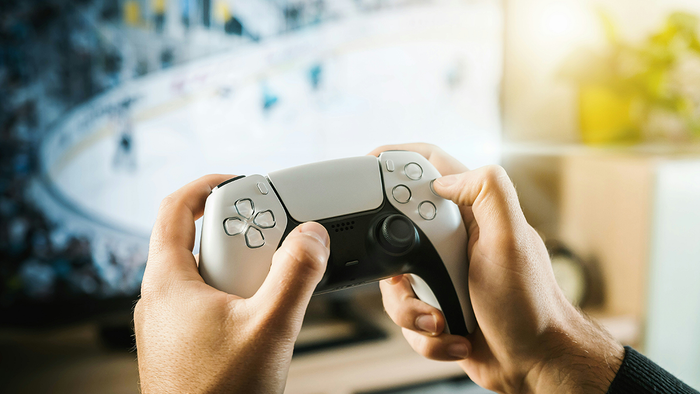The Psychology Of Games: The Unit Effect And Player Perceptions
Psychologist and gamer Jamie Madigan looks at a recent study about how our perceptions of simple game features can be affected by something as simple as seeing them presented in minutes or seconds.

[Psychologist and gamer Jamie Madigan looks at a recent study about how our perceptions of simple game features can be affected by something as simple as seeing them presented in minutes or seconds.] Hey. Hey! I've got some questions for you:
Do you think you'd be more likely to buy a new MMO if it came with a 28 day trial vs. a 4 week trial?
Would you be happier if your game character got a new ability with a 1.5 minute cooldown or a 90 second cooldown?
Would you feel more pressure from a 5 minute countdown timer or a 300 second timer?
Would you be happier with new loot that improved your armor rating of 10,000 by 10% or loot that improved it by 1,000?
The non-idiotic among you (which, I think, should be ALL of you) may be thinking that those choices are meaningless, since the options within each pair are mathematically equivalent. Presenting people with different units that they can easily convert between shouldn't influence their choices. An article in an upcoming issue of Journal of Consumer Research suggests otherwise. In the article, the authors propose what they call a "unit effect," which says that people often don't pay attention to the unit in which a figure is presented and can thus be overly influenced by the magnitude of numbers when comparing options. They found, for example, that subjects tended to see a smaller difference between warranties lasting 7 and 9 years, than between warranties lasting 84 and 108 months. This despite the fact that the differences between warranty length is identical in either case -- 7 years is the same as 84 months and 9 years equals 108 months. In a follow-up study, the researchers manipulated the presentation of energy content in apples and candy by presenting the numbers in either kilocalories or kilojoules (1 kilocalorie = 4.184 kilojoules, so the latter unit resulted in bigger numbers). They found that presenting in kilojoules (i.e., with a bigger number) caused people to choose the apples more often if they were concerned about watching their calorie intake. What's more, larger numbers tend to exacerbate this effect and make us perceive differences between options as more extreme. This was illustrated by one of the experiments where home theater systems were rated on either a 10-point or 1,000 point scale. Subjects comparing a low quality but cheaper system with a high quality but expensive system were more likely to say the differences in quality was much larger (and thus worth paying for) when the products were rated on a 1,000 point system than a 10 point system. In other words, a system rated 900 on one scale would be seen as higher quality than a system rated 9 on the other scale (at least relative to the more expensive model). The point is that people often don't do the mental arithmetic needed to compare two different units. Instead they slide down the easier path of just comparing numbers and using mental shortcuts like "Bigger numbers are better" (or worse, depending on the context). Long-time readers of these psychology of games articles will recognize "Screw it, I'll just take the path of least resistance because I've got too much going on" as one of our brains' most common refrains. What's more, comparisons between two factors are exaggerated when the numbers involved are bigger. This has a number of interesting applications to game design and how we as players react to things. As I hinted at above, when it comes time to choose new abilities for your character, cooldown timers should be seen as more attractive if they are presented in minutes rather than seconds. Free trials should be expressed in days (if not hours) instead of weeks or a month. Or if you want to make players feel time pressure, you could do the opposite: the countdown to the military's arrival in Dead Rising 2 should seem shorter if shown in hours or days instead of minutes. Or consider this: if your game uses numbers to represent damage, having really big numbers that differences between weapons is going to greatly affect players' choices. Say an in-game vendor is selling an axe that does 600 points of damage and a sword that does 1,200 points of damage. If the unit effect is true, players are going to see the sword as worth more than twice as much gold as they would if they were comparing options that did 60 and 120 points of damage. Because the magnitude of the numbers will inflate the quality difference between the two. This might not only affect selling prices from NPCs, but also auction houses as well. Now let's consider game reviews. Say you're looking at review scores for different games and trying to decide which to buy. The unit effect described above would suggest that review scores on a 100-point scale would be more likely to increase perceptions of quality differences between the two games than would scores on a 10-point or 5-point scale, even if the math is the same. Man, brains can be a real pain sometimes. References: Pandelaere, M., Briers, B., & Lembregts, C. (2011). How to make a 29% increase look bigger: The unit effect in option comparisons. Journal of Consumer Research, 38. [Jamie Madigan examines the overlap of psychology and video games at PsychologyOfGames.com and for GamePro magazine. He can be reached at [email protected].]
About the Author(s)
You May Also Like













